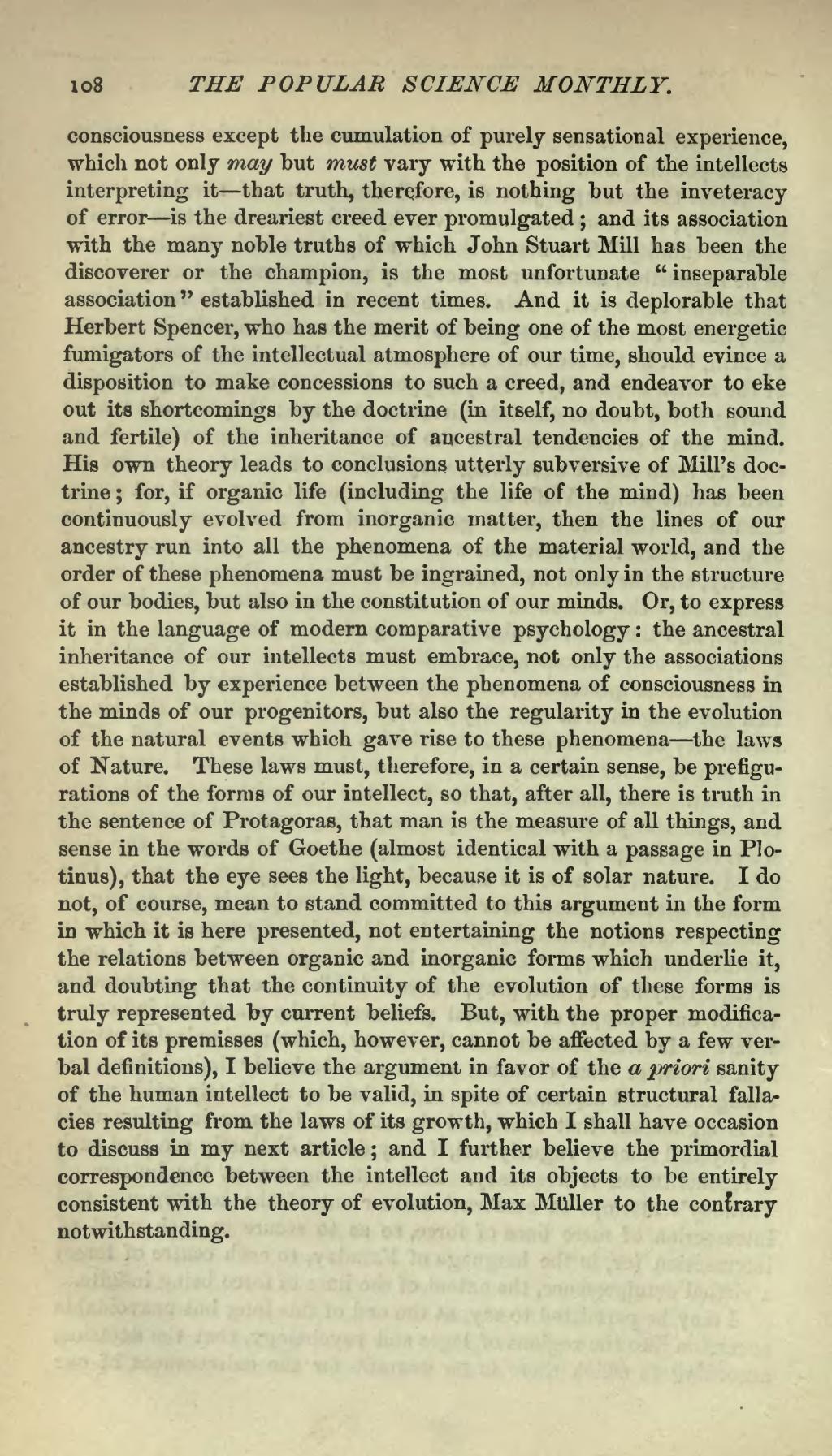consciousness except the cumulation of purely sensational experience, which not only may but must vary with the position of the intellects interpreting it—that truth, therefore, is nothing but the inveteracy of error—is the dreariest creed ever promulgated; and its association with the many noble truths of which John Stuart Mill has been the discoverer or the champion, is the most unfortunate "inseparable association" established in recent times. And it is deplorable that Herbert Spencer, who has the merit of being one of the most energetic fumigators of the intellectual atmosphere of our time, should evince a disposition to make concessions to such a creed, and endeavor to eke out its shortcomings by the doctrine (in itself, no doubt, both sound and fertile) of the inheritance of ancestral tendencies of the mind. His own theory leads to conclusions utterly subversive of Mill's doctrine; for, if organic life (including the life of the mind) has been continuously evolved from inorganic matter, then the lines of our ancestry run into all the phenomena of the material world, and the order of these phenomena must be ingrained, not only in the structure of our bodies, but also in the constitution of our minds. Or, to express it in the language of modern comparative psychology: the ancestral inheritance of our intellects must embrace, not only the associations established by experience between the phenomena of consciousness in the minds of our progenitors, but also the regularity in the evolution of the natural events which gave rise to these phenomena—the laws of Nature. These laws must, therefore, in a certain sense, be prefigurations of the forms of our intellect, so that, after all, there is truth in the sentence of Protagoras, that man is the measure of all things, and sense in the words of Goethe (almost identical with a passage in Plotinus), that the eye sees the light, because it is of solar nature. I do not, of course, mean to stand committed to this argument in the form in which it is here presented, not entertaining the notions respecting the relations between organic and inorganic forms which underlie it, and doubting that the continuity of the evolution of these forms is truly represented by current beliefs. But, with the proper modification of its premisses (which, however, cannot be affected by a few verbal definitions), I believe the argument in favor of the a priori sanity of the human intellect to be valid, in spite of certain structural fallacies resulting from the laws of its growth, which I shall have occasion to discuss in my next article; and I further believe the primordial correspondence between the intellect and its objects to be entirely consistent with the theory of evolution, Max Müller to the contrary notwithstanding.
Page:Popular Science Monthly Volume 4.djvu/118
This page has been validated.
108
THE POPULAR SCIENCE MONTHLY.
